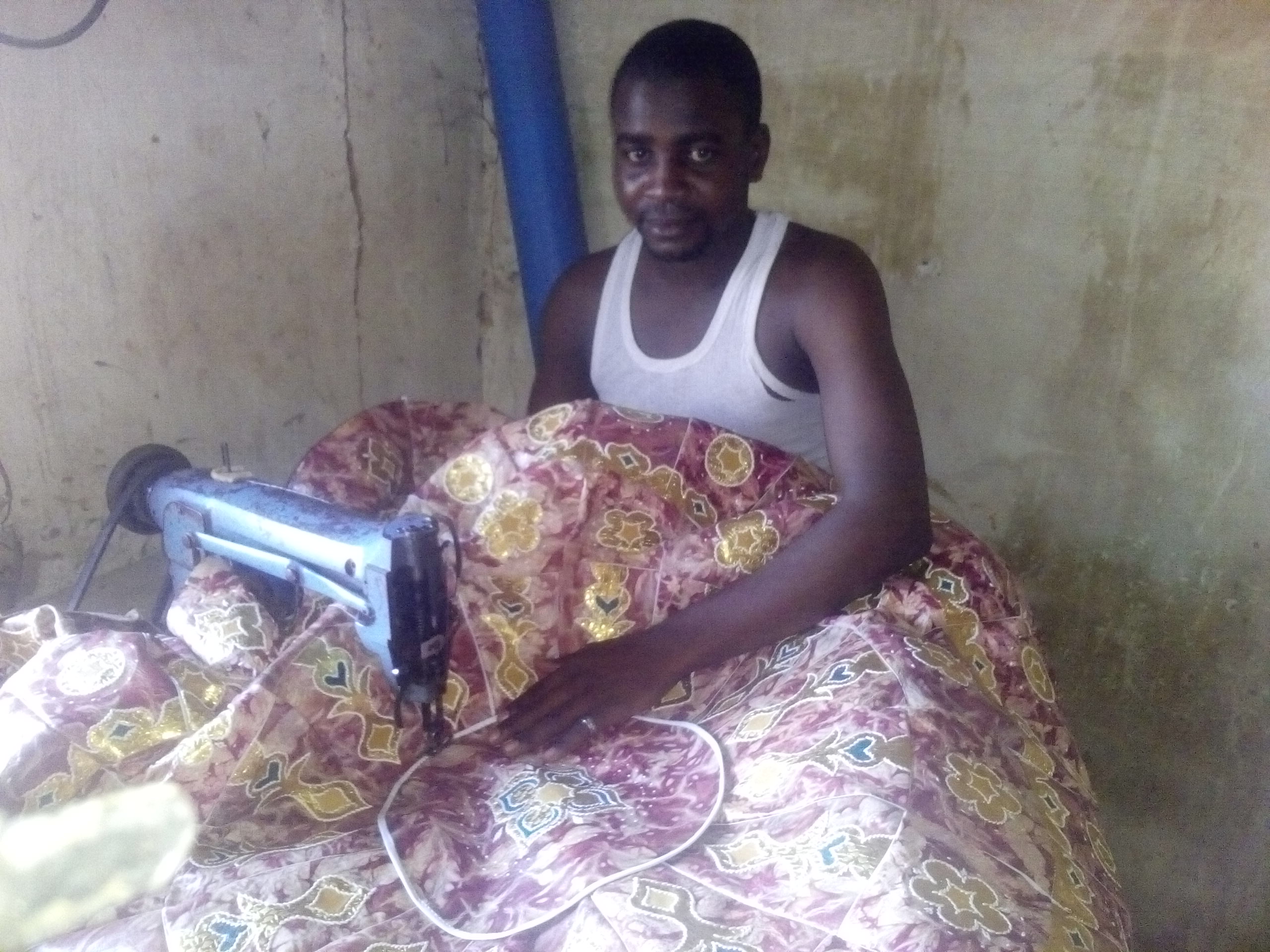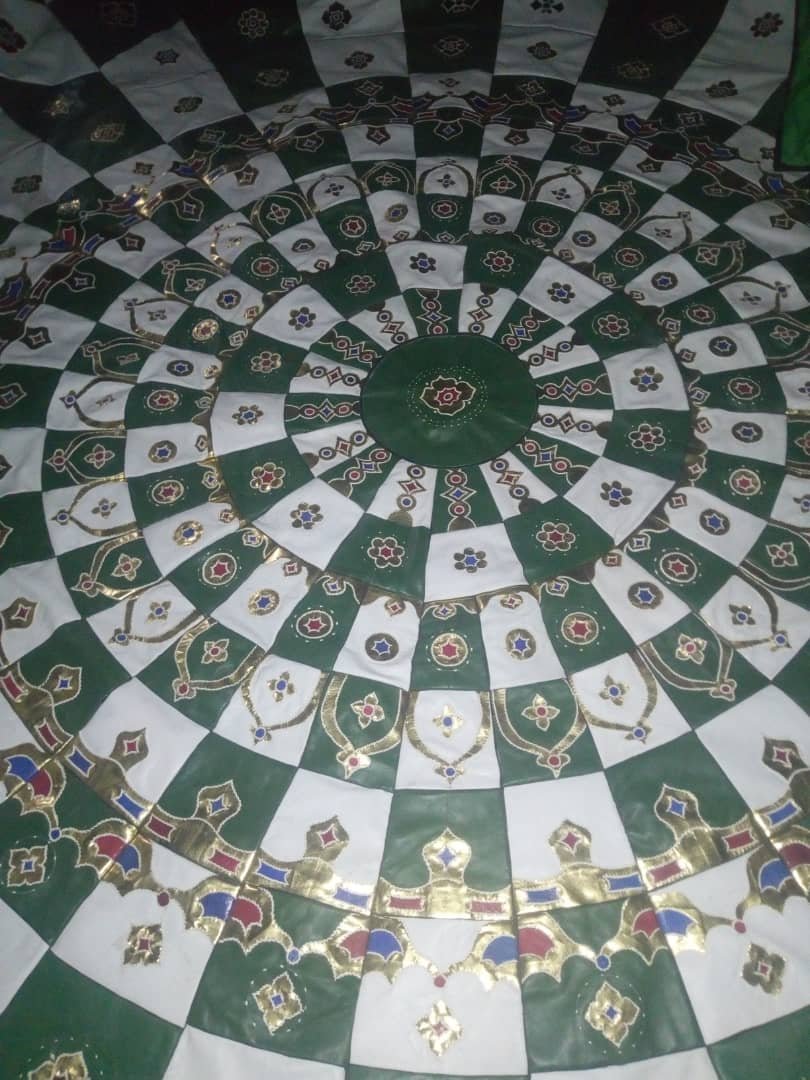Sokoto, the former capital of the north-western states is famed for being the seat of the Caliphate.
The ancient city is also renowned for trade especially in sheep skin, cattle hide, goat skin, kolanut and leather crafts.
Leather works is a famous and age long business in Sokoto and for a long time was among the revenue earners for the state because of its export component.
The state has a comparative advantage in this trade because of the high quality hide and skin it has, as a result of high production of animals, particularly red goat otherwise knwon as Sokoto Gudale.
There is also creativity of the people dating back to generations.
The leather works which in the past were limited to mostly footwear and horse saddles, has today grown to the production of varieties of items such as belts, mementos, bags, hats, car seat belts, and carpets among others.
In time past, only particular families were involved in the trade and it was handed down from one generation to another but currently, it has evolved and there are many new entrants in the business.
The evolution of the trade to accommodate everyone is largely attributed to the use of modern technology, away from the past practice when traditional methods were used.

To ensure that the state maintains its leadership in leather works in the country, former Governor Aliyu Magatakarda Wamakko’s administration sent a large number of people to the Zaria Leather Research Institute for training in addition to the 100 previously sent to traditional practitioners of leather work in the state for training.
The state treasurer of Sokoto Leather Multi-Purpose Association, Alhaji Abdulmumin Abubakar, had in an interview, acknowledged that government has been supportive of leather works, citing a grant of N70 million extended to members of the association by the Wamakko administration, which he said had assisted in enhancing their business through purchase of consumables.
He, however, said many of the members still required more support to enable them purchase equipment like sophisticated sewing and thinning machines that would further boost their productivity, improve the quality of their work and lead to more income for them
Abubakar said because those involved in the trade do not have the machines, it had negatively impacted the business and as a result, people in need of leather works now look towards Kano State instead of Sokoto as was the case in the past.
He attributed this to the high quality of leather works produced in Kano where the practitioners have sophisticated equipment to work with.
He, however, alluded to the fact that Sokoto had a thinning machines which broke down and had yet to be fixed, saying the repair of the machine will help to put the business back on track.
Abubakar said that efforts were made in the past by the government to promote the leather works industry, recalling that the Adamu Mu’azu administration sent some of their members to Niger Republic for training. He said there was a plan to replicate the training facilities in the neighbouring country in Sokoto but the plan could not be realised up to the time he was reassigned and replaced with Captain Abdulrashid Adisa Raji (NN) who also tried to continue with the project but was unable to do so up to the end of the tenure of his administration.
There was also a move by Governor Aminu Tambuwal’s government to revitalise the business through collaborative efforts with the United Nations Industrial Development Organization (UNIDO) which also did not yield the expected result.
According to him, the agreement with UNIDO stipulated that UNIDO would meet with stakeholders and other experts to map out strategies on how best to produce, package and market Sokoto leather works for export.
Without prejudice to the outcome of state government and UNIDO intervention, leather works practitioners are still beset with lack of patronage due to stiff competition with imported goods from within and outside the country.
The treasurer also decried the hike in prices of raw materials occasioned by the recent increase in the fuel pump price.

“There is a likelihood that those with small capital among us will leave the business due to high cost of raw materials.
“The pump price increment has further compounded the hardship already in the country. So people are now after what they will eat not beautification of their houses,” he stated.
Abubakar, therefore, appealed to both the state and federal governments to come to the rescue of their business by providing them with soft loans.
He further advocated that the government continues to send the youth to members of the association for training as this would expose more people to leather work business through which they would earn a living even as he said those already in the business also required more training in order to be up to date with the latest trends in leather works business, especially marketing.
A public affairs commentator, Malam Abubakar Umar, decried that Nigeria has remained a dumping ground for leather works products made in other countries, adding that local producers do not stand a chance against most of those products.
He cited the case of foot wears that come for instance from Turkey, whose quality Nigeria’s shoe manufacturers have to match if they are to enjoy patronage.
“All efforts have to be made to standardise leather works in this country if they have to be patronised every where in the world,” he added.
He, however, quipped that since not all products can be of international standard, efforts should be made to organise local manufacturers through cooperatives towards the production of higher quality products.









